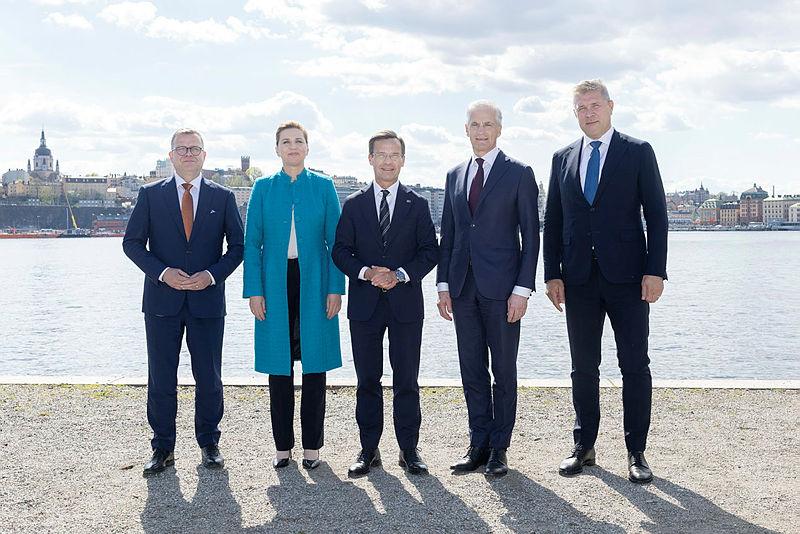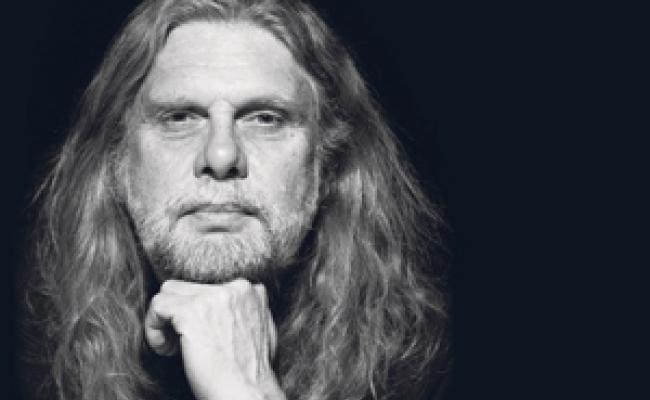Arne O. Holm says An Arctic Power Package. No, I Am Not Writing About the Export of Cheap Energy

From the Nordic summit in Stockholm on May 13th. PMs Ulf Kristersson from Sweden, Mette Frederiksen from Denmark, Jonas Gahr Støre from Norway, Petteri Orpo from Finland, and Bjarni Benediktsson from Iceland. (Photo: Ninni Andersson/the Swedish Government Offices)
Commentary: The Norwegian MFA, Espen Barth Eide, calls the new Nordic region a "big deal." In an interview with High North News, he is bursting with excitement over the opportunities that follow Sweden and Finland's NATO accession. In the list of ambitions, he also spoke of democratic challenges.
This is a commentary written by an editorial staff member. The commentary expresses the writer's views.
The Nordic region's perhaps most important "export product" is its democratic expertise, of which Europe and large parts of the world are experiencing a growing deficit.
Or put it this way: The demand for democracy continues to decline.
Tops statistics
The three Nordic countries top most statistics measuring democracy and freedom of speech and press.
Nordic cooperation has been unique through generations but has received little attention in recent years. The Norwegian MFA Espen Barth Eide points to a possible explanation: We have been too busy with Russia. He could have added that as a non-EU country, we have spent much of our energy dealing with the EU.
Politically, the collaboration has been so established that it barely needs maintenance. On the business side, there has been less progression, which can largely be blamed on the difference between being in and outside the EU.
A growing democratic deficit.
Arctic power package
Due to Sweden and Finland's accession to NATO, the Nordic region now looks like a new, possible Arctic power package. As the MFA points out, this opens up new security policy and military opportunities, but also in the civilian sector, particularly in the Cap of the North.
Europe is thirsting for our resources, such as Norwegian gas, Swedish iron ore, and Finnish technology, to mention a few.
Yet, what Europe really needs are international alliances that stand up for democracy.
It is enough to look at the imminent EU parliament election, where the extreme right is surging forward in several European countries. The EU parliament is an organ with little influence over daily European politics, of course. The power lies first and foremost in setting the budget and the European Commission.
Still, the EU parliament is also a thermometer. At the June election, extreme-right parties could win a fourth of the seats in the assembly of 751 representatives. That is enough to gain influence because the more traditional parties depend on cooperation with the extreme right to pass their policies, which is new to this election.
Whitewashing the dark brown.
Financed by Russia
That simultaneously opens up for cooperation coalitions that legitimize and whitewash the dark brown.
The extreme right is no bloc. Some, but not all are financed by Russia. Some, but not all, wants to stop all aid to Ukraine. Most wants to spend money building walls against refugees rather than on welfare measures for their own citizens. The major unifying aspect is the resistance toward real democracy, in addition to a deep fascination for Donald Trump.
If the Nordic region is looking like a democratic beacon, the warning lights are flashing here too.
Both the Finns Party and the Sweden Democrats are balancing on the edge of the clearly anti-democratic. Just recently, it was revealed that the latter has been running troll farms in social media, after being inspired by Russia.
A president that both lies and steals.
Still not threatened
However, in contrast to the US, with its lying and stealing presidential candidate who is manipulating the legal system, or Georgia, Poland, Hungary, and Turkey, the political and legal institutions are not yet threatened in the Nordic region.
On the contrary, Norway is currently adopting strengthened constitutional protection to stop any political interference with its legal system.
Sweden and Finland's NATO membership does not only have a security policy dimension.
It also secures a democratic force in both NATO and the EU.
And that is needed.



